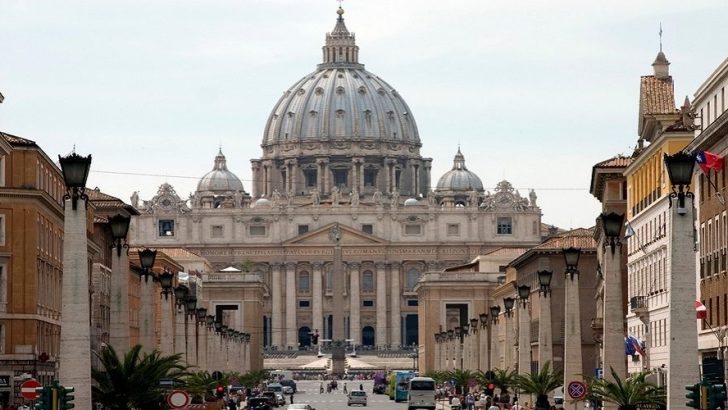Francis answers questions from children around the world
“What did God do before the world was made?” is one of 30 questions from children around the world the Pope tackles in a book to be published on March 1.
Dear Pope Francis, published by Loyola Press, and illustrated with drawings by children aged 6-13, was first proposed to the Pontiff by Fr Antonio Spadaro SJ last May. After receiving questions from 259 children in 26 countries, Fr Spadaro worked with other Jesuits and children, parents, grandparents and teachers in selecting 30 questions to put to the Pope.
Describing the children’s questions as “simple, but not silly”, Fr Spadaro said the project “says a lot about the magisterium of Pope Francis; he knows his ministry can reach children”.
The questions include ones about Jesus, Heaven, war and peace, and the Pope himself, who referred to the eight-year-old Canadian Ryan’s question about what God did before creation in his unscripted talk at September’s Festival of Families in Philadelphia.
“Believe me, I had a hard time answering that one,” Pope Francis said, continuing, “I told him what I am going to tell you now. Before he created the world, God loved, because God is love.”
Pope says bioethics should serve all, especially the weakest
Progress in biotechnology should not cause those working in the field to lose sight of how people should always be treated as ends and never as means, the Pope has reminded members of the Italian National Bioethics Committee.
Speaking at a January 28 audience, Pope Francis said medical advances should “never be used in a way that is harmful to human dignity nor driven only by manufacturing and commercial aims”.
Instead, he stressed, bioethics should seek to serve all people, especially “the weakest and most disadvantaged, who struggle to make their voices heard or who cannot yet or can no longer make their voice be heard”.
Noting how the committee has often “addressed respect for the integrity of the human being and the protection of health from conception to natural death, considering the person in his singularity, always as an end and never simply as a means”, the Holy Father urged committee members to fight a “throwaway culture” that treats the sick, the dying and human embryos as “disposable material”.
He encouraged them to focus on “disability and the marginalisation of vulnerable subjects in a society that revolves around competition and the acceleration of progress”, and asked them to promote an international harmonisation of standards and rules for biological and medical activities.
Sharing pain across our divisions
Prayers and care for the health of loved ones and questions about why God allows suffering are common ground for Christians, Muslims, and Jews, Pope Francis has said.
“Every hospital and nursing home can be a visible sign and setting in which to promote the culture of encounter and peace, where the experience of illness and suffering, along with professional and fraternal assistance, helps to overcome every limitation and division,” the Pope wrote in his message for the World Day of the Sick, to be celebrated on February 11.
Mary’s concern for the wedding guests at Cana, the Pontiff said, “reflected the tenderness of God”, with this same tenderness being “present in the lives of all those persons who attend the sick and understand their needs, even the most imperceptible ones, because they look upon them with eyes full of love”.


